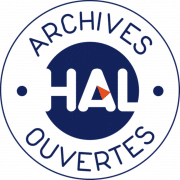BIOGEOCHIMICS
Headers : Magali Lescot and Elvira Pulido
The Biogeochemistry team's research activities focus onnt on processes biotic and abiotic factors that control the biogeochemical cycles of elements in the ocean (coastal and offshore, from the surface to the seabed) and on the coupling between these cycles at different spatio-temporal scales. We use techniques chemical, microbiological, microscopic, molecular, optics and single-cell, high-throughput imaging and genomics techniques as well as modelling (from process scale to integrated modelling) and deployment of web services (omics) to improve our understanding of these processes and their effects and feedback on the cycles in a context of global change.
More specifically, the research planned by the Biogeochemistry team will contribute to the development of the following research areas over the next five years next few years :
- Distribution and flows of chemical elements (C, N, O, P, Si, Hg, trace metals, etc.)., black carbon...) in the ocean and its interfaces.
- Transfer and transformation of elements through the metabolic pathways of microorganisms (primary production, respiration, mineralisation, enzymatic activities), nitrogen fixation, etc.) and interactions with matter export and sequestration. to the deep ocean.
- Links between the functional diversity of unicellular micro-organisms and the life cycles of these organisms. and their adaptation to changes in the marine environment.
- Changes in the biogeochemical functioning of the ocean as a result of climate change and anthropogenic activities at different scales (local to global). of ponds).
Our preferred study sites
The plankton image library
Knowledge of the structure of phyto- and zooplankton communities is essential for understanding the intensity of primary production in surface waters and the efficiency of carbon transfer to the deep ocean. In parallel with our studies linking planktonic diversity to the cycle of biogenic elements in the ocean, we are making available a gallery of images of microplankton collected during our various field campaigns.
Share on :






